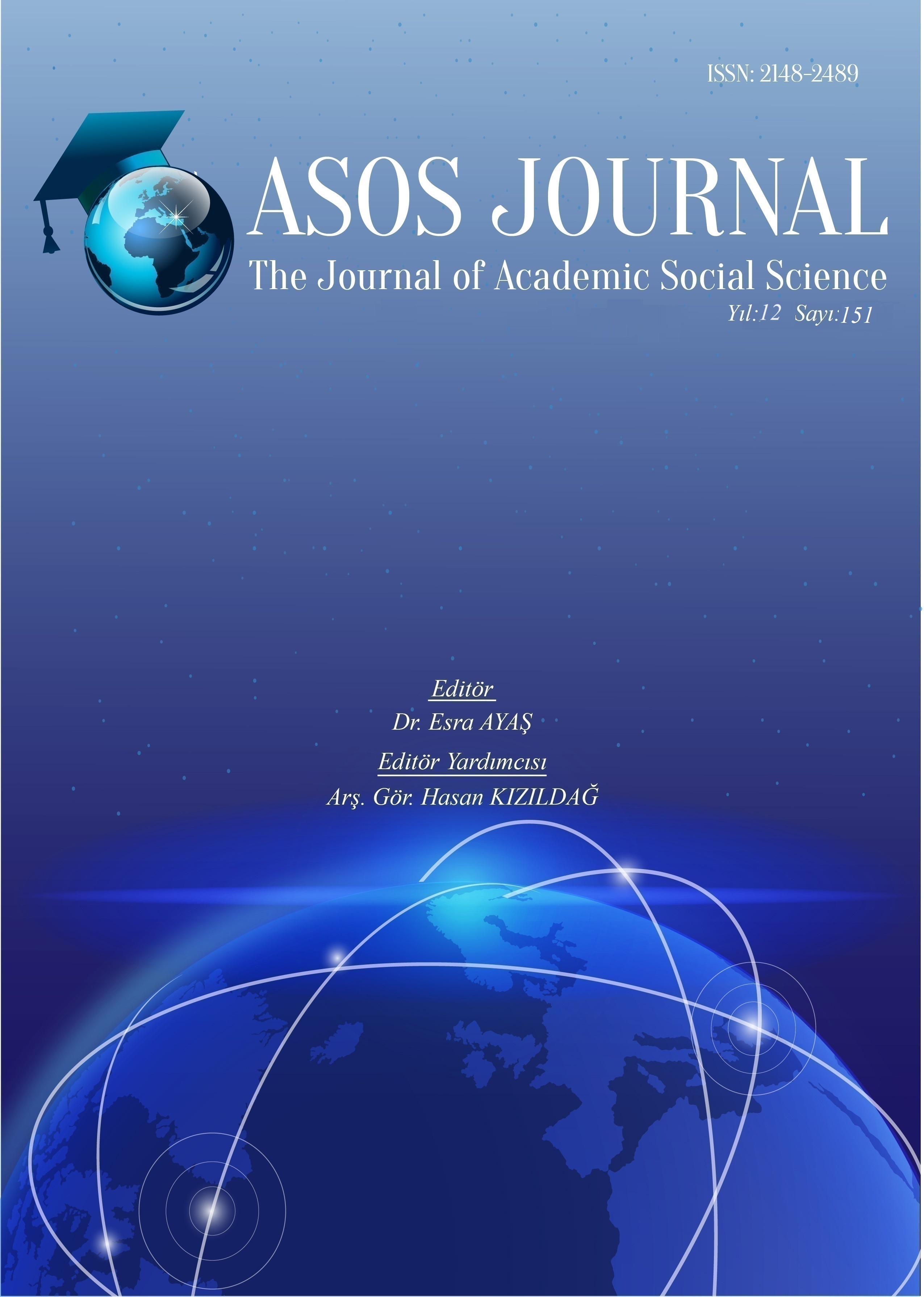Author :
Abstract
Orta Çağ’da Haçlı Seferleri için başlayan askeri hareketlilik ve beraberinde gelen Feodalite rejimi sonucunda oluşan Şövalye sistemi, söz (şiir) ve müziği birbiriyle buluşturan aynı zamanda halk ozanlığı geleneğini başlattığı kültürel müzik yolculuğundan ötürü, Rönesans Dönemi için de dindışı müziğin oluşumuna temel olabilecek önemli bir geçiş sürecidir. ‘’Yeniden Doğuş’’ anlamını taşıyan, tarihsel süreçte kültür, sanat ve politikanın kavşak noktası olan Rönesans (1400-1600), ilahi güç ve temsiliyeti olan kilisenin asıl önemini yitirip insan temasını merkeze alan bir dönem olup, toplumsal değişimlerinin yanı sıra kültür ve sanat alanında da çarpıcı gelişmelerin dönemidir. Korolarda dindışı müziğin başlaması, nota basımının gerçekleşmesi, çoksesli müzik ve Madrigal gibi yeni müzik formları adına oldukça zengin bir sahaya sahiptir. Tüm bunların yanı sıra, dönemin sosyopolitik değişimleri, coğrafi keşifleri, bilimsel çalışmaları, kültürel etkinlikleri, matbaanın icadı gibi gelişimleri bilginin yayılımını kolaylaştıran gelişmelerdir. Bu döneme çalışmalarıyla iz bırakan besteci ve çalgı müzisyenlerinin, müzik edebiyatına bıraktıkları miras günümüzde halen işlevsel halde katkı sunmaya devam etmektedir. Bu anlamda Rönesans dönemi müziğinin tarihsel sürecinin incelenmiş olup, sosyopolitik olayların bir sonucu olan Orta Çağ’ın gezgin şairleri olan şövalyeler, söz (şiir) ile müziğin birleşmesi noktasında müziğin gelişimi ve yeniliği açısından önem arz etmektedir. Yazılı ve çevrimiçi kaynakların incelemeleri üzerinden derlenen bu çalışmada betimsel araştırma modeli kullanılmış olup tarihi sürecindeki olay ve olgular, sebep sonuç ilişkisi üzerinden değerlendirip, müzik üzerindeki form ve enstrümantal gelişimlerinin etki alanları saptanmıştır.
Keywords
Abstract
The Knight system, which was formed as a result of the military mobility that started for the Crusades in the Middle Ages and the Feudalism regime that came with it, is an important factor that can be the basis for the formation of secular music for the Renaissance Period, due to the cultural music journey that brings together the word (poetry) and music, and also started the folk poet tradition. It is a transitional process. The Renaissance (1400-1600), which means "Rebirth" and is the crossroads of culture, art and politics in the historical process, is a period that loses the real importance of the church, which is the divine power and representation, and focuses on the human theme, as well as its social changes, culture and politics. It is also the period of striking developments in the field of art. It has a very rich field for the beginning of secular music in choirs, the realization of musical notation, polyphonic music and new music forms such as Madrigal. In addition to all these, developments such as the socio-political changes, geographical discoveries, scientific studies, cultural activities, and the invention of the printing press of the period are developments that facilitate the spread of knowledge. The legacy left by the composers and instrument musicians, who left their mark on this period with their works, still continues to contribute in a functional way today. In this sense, the historical process of Renaissance music has been examined, and the knights, the wandering poets of the Middle Ages, who were a result of sociopolitical events, are important in terms of the development and innovation of music at the point of merging words (poetry) and music. In this study, which was compiled through the examination of written and online sources, a descriptive research model was used, and the events and facts in the historical process were evaluated in terms of cause and effect relationships, and the impact areas of form and instrumental developments on music were determined.





